#Dave Clark
Text
How unions won a 30% raise for every fast food worker in California
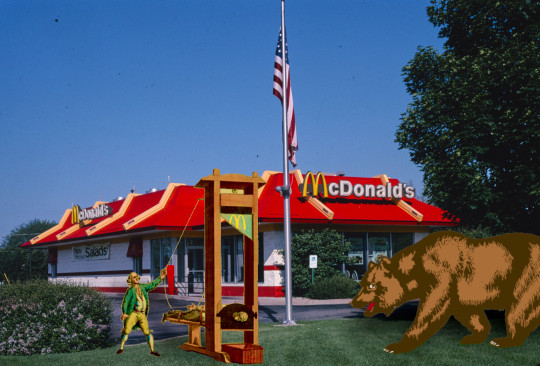
Tonight (September 14), I'm hosting the EFF Awards in San Francisco. On September 22, I'm (virtually) presenting at the DIG Festival in Modena, Italy.

Anything that can't go on forever will eventually stop. 40 years of declining worker power shattered the American Dream (TM), producing multiple generations whose children fared worse than their parents, cratering faith in institutions and hope for a better future.
The American neoliberal malaise – celebrated in by "centrists" who insisted that everything was fine and nothing could be changed – didn't just lead to a sense of helplessness, but also hopelessness. Denialism and nihilism are Siamese twins, and the YOLO approach to the climate emergency, covid mitigation, the housing crisis and other pressing issues can't be disentangled from the Thatcherite maxim that "There is NoA lternative." If there's no alternative, then we're doomed. Dig a hole, climb inside, pull the dirt down on top of yourself.
But anything that can't go on forever will eventually stop. For decades, leftists have taken a back seat to liberals in the progressive coalition, allowing "unionize!" to be drowned out by "learn to code!" The liberal-led coalition ceded the mantle of radical change to fake populist demagogues on the right.
This opened a space for a mirror-world politics that insisted that "conservatives" were the true defenders of women (because they were transphobes), of bodily autonomy (because they were vaccine deniers), of the environment (because they opposed wind-farms) and of workers (because they opposed immigration):
https://pluralistic.net/2023/09/05/not-that-naomi/#if-the-naomi-be-klein-youre-doing-just-fine
Anything that can't go on forever will eventually stop. A new coalition dedicated to fighting corporate power has emerged, tackling capitalism's monopoly power, and the corruption and abuse of workers it enables. That coalition is global, it's growing, and it's kicking ass.
Case in point: California just passed a law that will give every fast-food worker in the state a 30% raise. This law represents a profound improvement to the lives of the state's poorest workers – workers who spend long hours feeding their neighbors, but often can't afford to feed themselves at the end of a shift.
But just as remarkable as the substance of this new law is the path it took – a path that runs through a new sensibility, a new vibe, that is more powerful than mere political or legal procedure. The story is masterfully told in The American Prospect by veteran labor writer Harold Meyerson:
https://prospect.org/labor/2023-09-13-half-million-california-workers-get-raise/
The story starts with Governor Newsom signing a bill to create a new statewide labor-business board to mediate between workers and bosses, with the goal of elevating the working conditions of the state's large, minimum-wage workforce. The passage of this law triggered howls of outrage from the state's fast-food industry, who pledged to spend $200m to put forward a ballot initiative to permanently kill the labor-business board.
This is a familiar story. In 2019, California's state legislature passed AB-5, a bill designed to end the gig-work fiction that people whose boss is an algorithm are actually "independent businesses," rather than employees. AB5 wasn't perfect – it swept up all kinds of genuine freelancers, like writers who contributed articles to many publications – but the response wasn't aimed at fixing the bad parts. It was designed to destroy the good parts.
After AB-5, Uber and Lyft poured more than $200m into Prop 22, a ballot initiative designed to permanently bar the California legislature from passing any law to protect "gig workers." Prop 22's corporate backers flooded the state with disinformation, and procured a victory in 2020. The aftermath was swift and vicious, with Prop 22 used as cover in mass-firings of unionized workers across the state's workforce:
https://pluralistic.net/2021/01/05/manorialism-feudalism-cycle/#prop22
Workers and the politicians who defend them were supposed to be crushed by Prop 22. Its message was "there is no alternative." "Abandon hope all ye who enter here." "Resistance is futile." Prop 22 was worth spending $200m on because it wouldn't just win this fight – it would win all fights, forever.
But that's not what happened. When the fast-food barons announced that they were going to pump another $200m into a state ballot initiative to kill fair wages for food service workers, they got a hell of a surprise. SEIU – a union that has long struggled to organize fast-food workers – collaborated with progressive legislators to introduce a pair of new, even further-reaching bills.
One bill would have made the corporate overseers of franchise businesses jointly liable for lawbreaking by franchisees – so if a McDonald's restaurant owner stole their employees' wages, McDonalds corporate would also be on the hook for the offense. The second bill would restore funding and power to the state Industrial Welfare Commission, which once routinely intervened to set wages and working standards in many state industries:
https://www.gtlaw-laborandemployment.com/2023/08/the-california-iwc-whats-old-is-new-again/
Fast-food bosses fucked around, and boy did they find out. Funding for the IWC passed the state budget, and the franchisee joint liability is set to pass the legislature this week. The fast-food bosses cried uncle and begged Newsom's office for a deal. In exchange for defunding the IWC and canceling the vote on the liability bill, the industry has agreed to an hourly wage increase for the state's 550,000 fast-food workers, from $15.50 to $20, taking effect in April.
The deal also includes annual raises of either 3.5% or the real rise in cost of living. It keeps the labor-management council that the original bill created (the referendum on killing that council has been cancelled). The council will include two franchisees, two fast food corporate reps, two union reps, two front-line fast-food workers and a member of the public. It will have the power to direct the state Department of Labor to directly regulate working conditions in fast-food restaurants, from health and safety to workplace violence.
It's been nearly a century since business/government/labor boards like this were commonplace. The revival is a step on the way to bringing back the practice of sectoral bargaining, where workers set contracts for all employers in an industry. Sectoral bargaining was largely abolished through the dismantling of the New Deal, though elements of it remain. Entertainment industry unions are called "guilds" because they bargain with all the employers in their sector – which is why all of the Hollywood studios are being struck by SAG-AFTRA and the WGA.
So what changed between 2020 – when rideshare bosses destroyed democratic protections for workers by flooding the zone with disinformation to pass Prop 22 – and 2023, when the fast food bosses folded like a cheap suit? It wasn't changes to the laws governing ballot initiatives, nor was it a lack of ready capital for demolishing worker rights. Fast food executives weren't visited by three ghosts in the night who convinced them to care for their workers. Their hearts didn't grow by three sizes.
What changed was the vibe. The Hot Labor Summer was a rager, and it's not showing any signs of slowing. Obviously that's true in California, where nurses and hotel workers are also striking, and where strikebreaking companies like Instawork ("Uber for #scabs") attract swift regulatory sanction, rather than demoralized capitulation:
https://pluralistic.net/2023/07/30/computer-says-scab/#instawork
The hot labor summer wasn't a season – it was a turning point. Everyone's forming unions. Think of Equity Strip NoHo, the first strippers' union in a generation, which won recognition from their scumbag bosses at North Hollywood's Star Garden Club, who used every dirty trick to kill workplace democracy.
The story of the Equity Strippers is amazing. Two organizers, Charlie and Lilith, appeared on Adam Conover's Factually podcast to describe the incredible creativity and solidarity they used to win recognition, and the continuing struggle to get a contract out of their bosses, who are still fucking around and assuming they will not find out:
https://www.youtube.com/watch?v=_fgXihmHIZk
Like the fast-food bosses, the Star Garden's owners are in for a surprise. One of the most powerful elements of the Equity Strippers' story is the solidarity of their customers. Star Garden's owners assumed that their clientele were indiscriminate, horny assholes who didn't care about the wellbeing of the workers they patronized, and would therefore cross a picket-line because parts is parts.
Instead, the bar's clientele sided with the workers. People everywhere are siding with workers. A decade ago, when video game actors voted on a strike, the tech workers who coded the games were incredibly hostile to them. "Why should you get residuals for your contribution to this game when we don't?"
But SAG-AFTRA members who provide voice acting for games just overwhelmingly voted to authorize a strike, and this time the story is very different. This time, tech workers are ride-or-die for their comrades in the sound booths:
https://www.latimes.com/entertainment-arts/business/story/2023-09-13/video-game-voice-actor-sag-strike-interactive-agreement-actors-strike
What explains the change in tech workers' animal sentiments? Well, on the one hand, labor rights are in the air. The decades of cartoonish, lazy dismissals of labor struggles have ended. And on the other hand, tech workers have been proletarianized, with 260,000 layoffs in the sector, including 12,000 layoffs at Google that came immediately after a stock buyback that would have paid those 12,000 salaries for the next 27 years:
https://doctorow.medium.com/the-proletarianization-of-tech-workers-ad0a6b09f7e6
Larry Lessig once laid out a theory of change that holds that our society is governed by four forces: law (what's legal), norms (what's socially acceptable), markets (what's profitable) and code (what's technologically possible):
https://cs.stanford.edu/people/eroberts/cs181/projects/2010-11/CodeAndRegulation/about.html
These four forces interact. When queer relationships were normalized, it made it easier to legalize them, too – and then the businesses that marriage equality became both a force for more normalization and legal defense.
When Lessig formulated this argument, much of the focus was on technology – how file-sharing changed norms, which changed law. But as the decades passed, I've come to appreciate what the argument says about norms, the conversations we have with one another.
Neoliberalism wants you to think that you're an individual, not a member of a polity. Neoliberalism wants you to bargain with your boss as a "free agent," not a union member. It wants you to address the climate emergency by recycling more carefully – not by demanding laws banning single-use plastics. It wants you to fight monopolies by shopping harder – not by busting trusts.
But that's not what we're doing – not anymore. We're forming unions. We're demanding a Green New Deal. And we're busting some trusts. The DoJ Antitrust Division case against Google is the (first) trial of the century, reviving the ancient and noble practice of fighting monopolies with courts, not empty platitudes.
The trial is incredible, and Yosef Weitzman's reporting on Big Tech On Trial is required reading. I'm following it closely (thankfully, there's a fulltext RSS feed):
https://www.bigtechontrial.com/p/what-makes-google-great
The neoliberal project of instilling learned helplessness about corporate power has hit the wall, and it's wrecked. The same norms that made us furious enough to put Google on trial are the norms that made us angry – not cynical – about Clarence Thomas's bribery scandals:
https://pluralistic.net/2023/04/06/clarence-thomas/#harlan-crow
And they're the same norms that made us support our striking comrades, from hotel housekeepers to Hollywood actors, from strippers to Starbucks baristas:
https://thetyee.ca/News/2023/09/13/Starbucks-Workers-Back-At-Strike/
Yes, Starbucks baristas. The Starbucks unions that won hard-fought recognition drives are now fighting the next phase of corporate fuckery: Starbucks corporate's refusal to bargain for a contract. Starbucks is betting that if they just stall long enough, the workers who support the union will move on and they'll be able to go back to abusing their workers without worrying about a union.
They're fucking around, and they're finding out. Starbucks workers at two shops in British Columbia – Clayton Crossing in Surrey and Valley Centre in Langley – have authorized strikes with a 91% majority:
https://thetyee.ca/News/2023/09/13/Starbucks-Workers-Back-At-Strike/
Where did the guts to do this come from? Not from labor law, which remains disgustingly hostile to workers (though that's changing, as we'll see below). It came from norms. It came from getting pissed off and talking about it. Shouting about it. Arguing about it.
Laws, markets and code matter, but they're nothing without norms. That's why Uber and Lyft were willing to spend $200m to fight fair labor practices. They didn't just want to keep their costs low – they wanted to snuff out the vibe, the idea that workers deserve a fair deal.
They failed. The idea didn't die. It thrived. It merged with the idea that corporations and the wealthy corrupt our society. It was joined by the idea that monopolies harm us all. They're losing. We're winning.
The BC Starbucks workers secured 91% majorities in their strike votes. This is what worker power looks like. As Jane McAlevey writes in her Collective Bargain, these supermajorities – ultramajorities – are how we win.
https://doctorow.medium.com/a-collective-bargain-a48925f944fe
The neoliberal wing of the Democratic party hires high-priced consultants who advise them to seek 50.1% margins of victory – and then insist that nothing can be done because we live in the Manchin-Synematic Universe, where razor-thin majorities mean that there is no alternative. Labor organizers fight for 91% majorities – in the face of bosses' gerrymandering, disinformation and voter suppression – and get shit done.
Shifting the norms – having the conversations – is the tactic, but getting shit done is the goal. The Biden administration – a decidedly mixed bag – has some incredible, technically skilled, principled fighters who know how to get shit done. Take Lina Khan, who revived the long-dormant Section 5 of the Federal Trade Act, which gives her broad powers to ban "unfair and deceptive" practices:
https://pluralistic.net/2023/01/10/the-courage-to-govern/#whos-in-charge
Khan's wielding this broad power in all kinds of exciting ways. For example, she's seeking a ban on noncompetes, a form of bondage that shackles workers to shitty bosses by making it illegal to work for anyone else in the same industry:
https://pluralistic.net/2022/02/02/its-the-economy-stupid/#neofeudal
Noncompete apologists argue that these merely protect employers' investment in training and willingness to share sensitive trade secrets with employees. But the majority of noncompetes are applied to fast food workers – yes, the same workers who just won a 30%, across-the-board raise – in order to prevent Burger King cashiers from seeking $0.25/hour more at a local Wendy's.
Meanwhile, the most trade-secret intensive, high-training industry in the world – tech – has no noncompetes. That's not because tech bosses are good eggs who want to do right by their employees – it's because noncompetes are banned in California, where tech is headquartered.
But in other states, where noncompetes are still allowed, bosses have figured out how to use them as a slippery slope to a form of bondage that beggars the imagination. I'm speaking of the Training Repayment Agreement Provision (AKA, the TRAP), a contractual term that forces workers who quit or get fired to pay their ex-bosses tens of thousands of dollars, supposedly to recoup the cost of training them:
https://pluralistic.net/2022/08/04/its-a-trap/#a-little-on-the-nose
Now, TRAPs aren't just evil, they're also bullshit. Bosses show pet-groomers or cannabis budtenders a few videos, throw them a three-ring binder, and declare that they've received a five-figure education that they must repay if they part ways with their employers. This gives bosses broad latitude to abuse their workers and even order them to break the law, on penalty of massive fines for quitting.
If this sounds like an Unfair Labor Practice to you, you're not alone. NLRB General Counsel Jennifer Abruzzo agrees with you. She's another one of those Biden appointees with a principled commitment to making life better for American workers, and the technical chops to turn that principle into muscular action.
In a case against Juvly Aesthetics – an Ohio-based chain of "alternative medicine" and "aesthetic services" – Abruzzo argues that noncompetes and TRAPs are Unfair Labor Practices that violate the National Labor Relations Act and cannot be enforced:
https://www.nlrb.gov/case/09-CA-300239
Two ex-Juvly employees have been hit with $50-60k "repayment" bills for quitting – one after refusing to violate Ohio law by performing "microneedling," another for quitting after having their wages stolen and then refusing to sign an "exit agreement":
https://prospect.org/labor/2023-09-14-nlrb-complaint-calls-noncompete-agreement-unfair-labor-practice/
If the NLRB wins, the noncompete and TRAP clauses in the workers' contracts will be voided, and the workers will get fees, missed wages, and other penalties. More to the point, the case will set the precedent that noncompetes are generally unenforceable nationwide, delivering labor protection to every worker in every sector in America.
Abruzzo has been killing it lately: just a couple weeks ago, she set a precedent that any boss that breaks labor law during a union drive automatically loses, with instant recognition for the union as a penalty (rather than a small fine, as was customary):
https://pluralistic.net/2023/09/06/goons-ginks-and-company-finks/#if-blood-be-the-price-of-your-cursed-wealth
Abruzzo is amazing – as are her colleagues at the NLRB, FTC, DOJ, and other agencies. But the law they're making is downstream of the norms we set. From the California lawmakers who responded to fast food industry threats by introducing more regulations to the strip-bar patrons who refused to cross the picket-line to the legions of fans dragging Drew Barrymore for scabbing, the public mood is providing the political will for real action:
https://www.motherjones.com/media/2023/09/drew-barrymores-newest-role-scab/
The issues of corruption, worker rights and market concentration can't – and shouldn't – be teased apart. They're three facets of the same fight – the fight against oligarchy. Rarely do those issues come together more clearly than in the delicious petard-hoisting of Dave Clark, formerly the archvillain of Amazon, and now the victim of its bullying.
As Maureen Tkacik writes for The American Prospect, Clark had a long and storied career as Amazon's most vicious and unassuming ghoul, a sweatervested, Diet-Coke-swilling normie whose mild manner disguised a vicious streak a mile wide:
https://prospect.org/power/2023-09-14-catch-us-if-you-can-dave-clark-amazon/
Clark earned his nickname, "The Sniper," as a Kentucky warehouse supervisor; the name came from his habit of "lurking in the shadows [and] scoping out slackers he could fire." Clark created Amazon Flex, the "gig work" version of Amazon delivery drivers where randos in private vehicles were sent out to delivery parcels. Clark also oversaw tens of millions of dollars in wage-theft from those workers.
We have Clark to thank for the Amazon drivers who had to shit in bags and piss in bottles to make quota. Clark was behind the illegal union-busting tactics used against employees in the Bessamer, Alabama warehouse. We have Clark to thank for the Amazon chat app that banned users from posting the words "restroom," "slave labor," "plantation," and "union":
https://pluralistic.net/2022/04/05/doubleplusrelentless/#quackspeak
But Clark doesn't work for Amazon anymore. After losing a power-struggle to succeed Jeff Bezos – the job went to "longtime rival" Andy Jassy – he quit and went to work for Flexport, a logistics company that promised to provide sellers that used non-Amazon services with shipping. Flexport did a deal with Shopify, becoming its "sole official logistics partner."
But then Shopify did another logistics deal – with Amazon. Clark was ordered to tender his resignation or face immediate dismissal.
How did all this happen? Well, there are two theories. The first is that Shopify teamed up with Amazon to stab Flexport in the back, then purged all the ex-Amazonians from the Flexport upper ranks. The other is that Clark was a double-agent, who worked with Amazon to sabotage Flexport, and was caught and fired.
But either way, this is a huge win for Amazon, a monopolist who is in the FTC's crosshairs thanks to the anti-corporate vibe-shift that has consumed the nation and the world. As the sole major employer for this kind of logistics, Amazon is a de facto labor regulator, deciding who can work in the sector. The FTC's enforcement action isn't just about monopoly – it's about labor.
Now, Clark is a rich, powerful white dude, not the sort of person who needs a lot of federal help to protect his labor rights. When liberals called the shot in the progressive coalition, they scolded leftists not to speak of class, but rather to focus on identity – to be intersectionalists.
That was a trick. There's no incompatibility between caring about class and caring about gender, race and sexual orientation. Those fast food workers who are about to get a 30% wage-hike in California? Overwhelmingly Black or brown, overwhelmingly female.
The liberal version of intersectionalism observes a world run by 150 rich white men and resolves to replace half of them with women, queers and people of color. The leftist version seeks to abolish the system altogether. The leftist version of intersectionalism cares about bias and discrimination not just because of how it makes people feel, but because of how it makes them live. It cares about wages, housing, vacations, child care – the things you can't get because of your identity.
The fight for social justice is a fight for worker justice. Eminently guillotineable monsters like Tim "Avocado Toast" Gurner advocate for increasing unemployment by "40-50%" – but Gurner is just saying what other bosses are thinking:
https://jacobin.com/2023/09/tim-gurner-capitalists-neoliberalism-unemployment-precarity
Garner is 100% right when he says: "There’s been a systematic change where employees feel the employer is extremely lucky to have them, as opposed to the other way around."
And then he says this: "So it’s a dynamic that has to change. We’ve got to kill that attitude, and that has to come through hurt in the economy."
Garner knows that the vibes are upstream of the change. The capitalist dream starts with killing our imagination, to make us believe that "there is no alternative." If we can dream bigger than "better representation among oligarchs" when we might someday dream of no oligarchs. That's what he fears the most.
Watch the video of Garner. Look past the dollar-store Gordon Gecko styling. That piece of shit is terrified.
And he should be.

If you'd like an essay-formatted version of this post to read or share, here's a link to it on pluralistic.net, my surveillance-free, ad-free, tracker-free blog:
https://pluralistic.net/2023/09/14/prop-22-never-again/#norms-code-laws-markets


EFF Awards, San Francisco, September 14
#pluralistic#factually#adam conover#starbucks#google#antitrust#dave clark#amazon#noncompetes#jennifer abruzzo#nlrb#flexport#shopify#trap#juvly#labor#calfornia#four factors#lessig#california#seiu#fast food#Industrial Welfare Commission#Department of Industrial Relations#sectoral bargaining#unions#hot labor summer#race#intersectionalism#prop 22
660 notes
·
View notes
Text

Dave Clark Five - Mike Smith
22 notes
·
View notes
Text
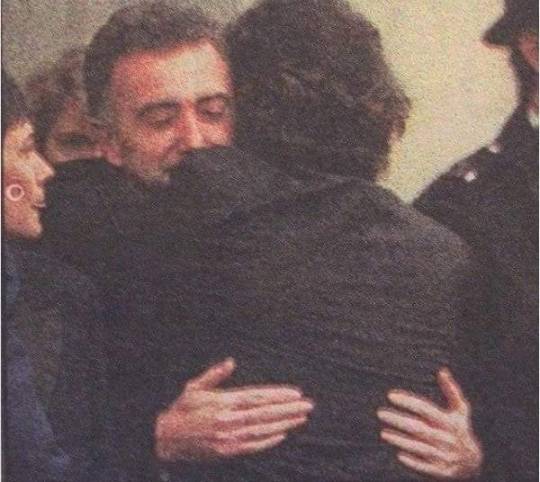
Today, on 27th November, 1991
Private funeral service held for Freddie Mercury
UPI ARCHIVES NOV. 27, 1991
LONDON -- Family and close friends, including Elton John, gathered Wednesday for the cremation of Freddie Mercury, the lead singer of the rock group Queen, who died of AIDS during the weekend.
Wreaths lined the entrance of the West London Crematorium where a 25- minute private service was conducted by two Parsee priests.
A single red rose was placed on top of the coffin which was carried into the chapel as Aretha Franklin's rendition of 'Precious Lord Take My Hand' was played, followed by 'You've Got a Friend,' said Queen spokeswoman Roxy Meade.
The ceremony ended with Mercury's favorite aria, 'D'amour sull 'ali Rose' composed by Verdi and sung by Montserrat Cabelle, who joined Mercury in a duet on his solo album 'Barcelona.'
Fellow Queen members Brian May, Roger Taylor, and John Deacon attended the funeral along with pop stars Elton John and Anita Dobson. Queen had described the flamboyant Mercury as the 'most beloved member of our family.'
Flowers sent to Mercury by fans were carried in five hearses to the service, which was attended only by family and close friends, Meade said. The flowers were later distributed to AIDS wards in London.
Queen announced Wednesday it planned to re-release its best selling hit 'Bohemian Rhapsody' next month and donate the profits to charity
#freddie mercury#queen band#london#zanzibar#legend#queen#brian may#john deacon#freddiebulsara#roger taylor#1991#november 27 1991#dave clark
33 notes
·
View notes
Text
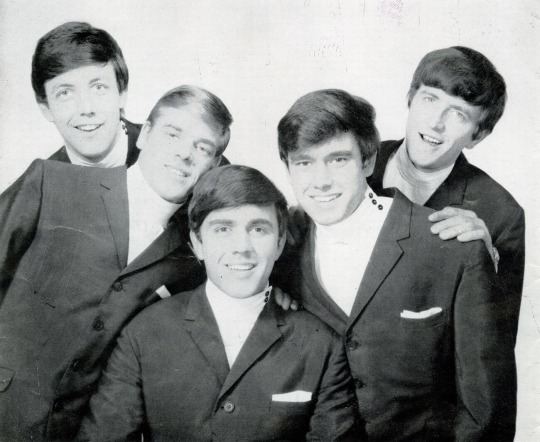
THE DAVE CLARK FIVE
15 notes
·
View notes
Photo
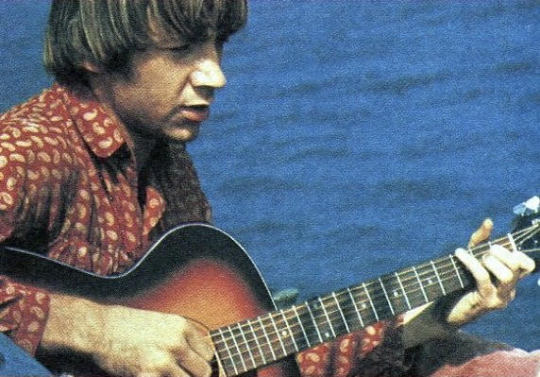
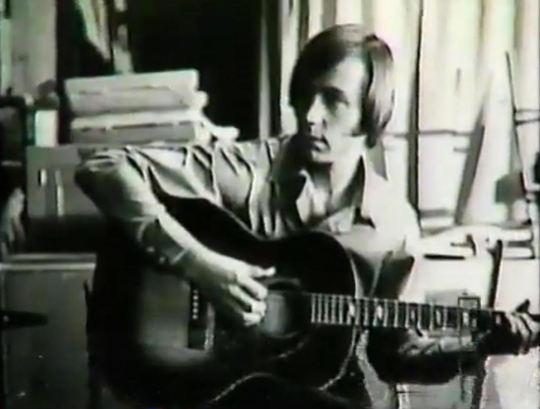
On set, 1967.
“I went to Peter’s home for dinner and we spent the evening talking about music. I found him to be a very talented guitarist. People say they’re not musicians, but I think Peter’s a brilliant guitar player.
A lot of people don’t realize they’ve been around for years — working and roughing it.” - Dave Clark, Tiger Beat, September 1967
"Peter is the best rock guitarist around today. He plays about ten instruments in all — just about everything with strings. Mike and I also play guitars, although we are not in Peter’s class." - Davy Jones, Melody Maker, January 14, 1967
“Peter Tork has to be one of the best guitarists around — he can cut anybody on guitar. He plays about 10 instruments — banjo, uke, the lot.” - Davy Jones, The Ottawa Journal, January 20, 1967
"I adore Peter Tork. He really is one of the most super people I’ve ever met. The day we said ‘Hello’ he seemed to play his guitar and sing to me for hours — talk about romantic!
Peter is very talented; intelligent, too. We spent a long time talking about such things as classical music and reincarnation. We have similar views about life and death: he believes there will always be a Peter Tork, and I believe there will always be a Jennifer Moss. Peter talked to me a lot. He put me right on a lot of things." - Jennifer Moss, NME, November 25, 1967 (x)
“Peter Tork is well known for his ability to play anywhere, anytime.
He does not have to be on stage or even have a chair to sit on, as many people have found out at parties and clubs. If anyone hands him a Guitar or Banjo he just plonks himself right down, crossed-legged [sic] on the floor, and treats every one to a fantastic performance.” - Monkees Monthly, September 1967
#Peter Tork#Tork quotes#Dave Clark#The Monkees#Monkees#1960s#60s Tork#<3#Davy Jones#Michael Nesmith#Micky Dolenz#long read#Jennifer Moss#The Monkees Season 2#The Monkees: Hitting The High Seas#screenshots#Tiger Beat#Melody Maker#The Ottawa Journal#Monkees Monthly#NME#can you queue it
25 notes
·
View notes
Text

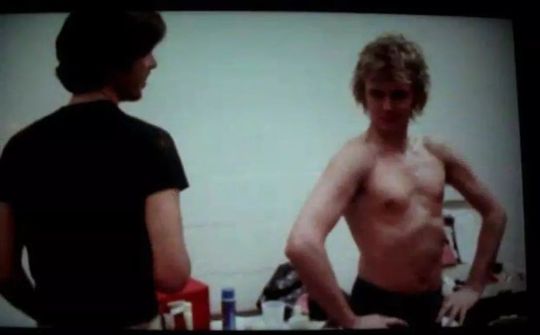
#Repost @/_letusclingtogether_ on Instagram:
——
Roger Taylor with Dave Clark.
47 notes
·
View notes
Text
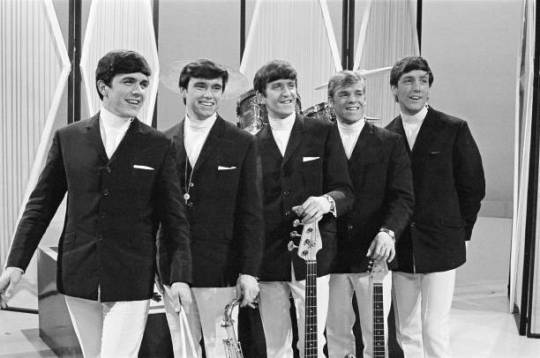
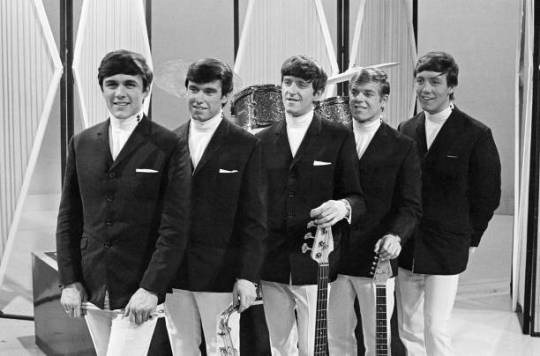
14 notes
·
View notes
Text

York Spam (Part 2)
7 notes
·
View notes
Text
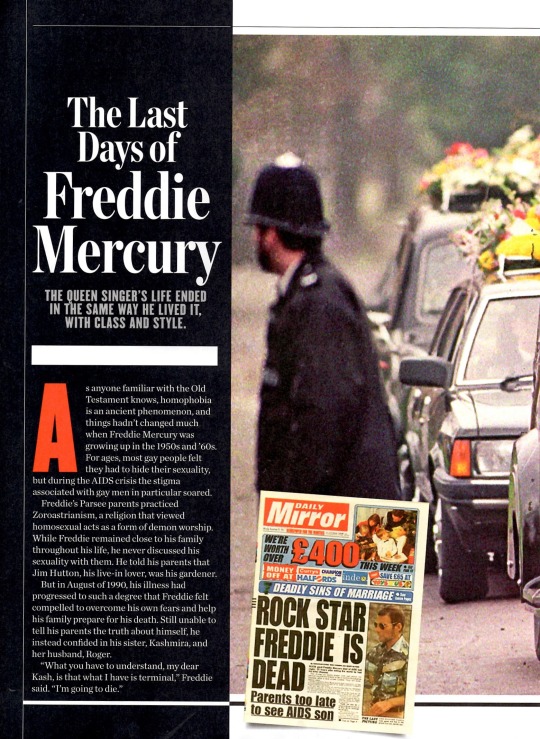
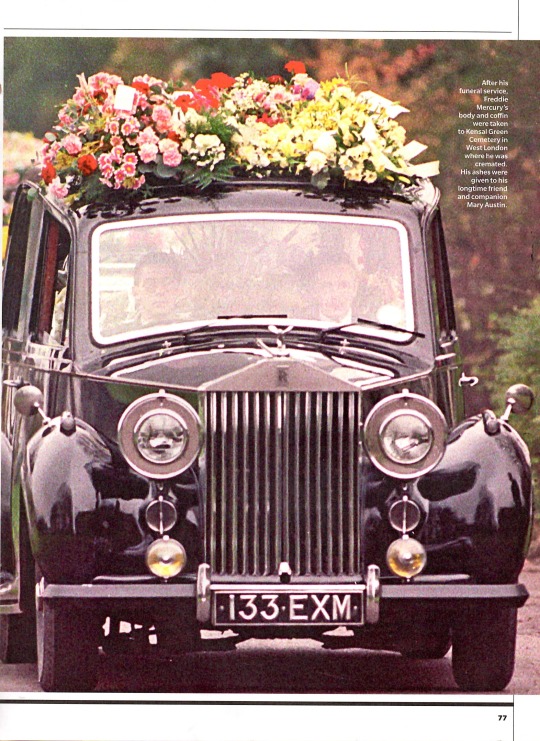
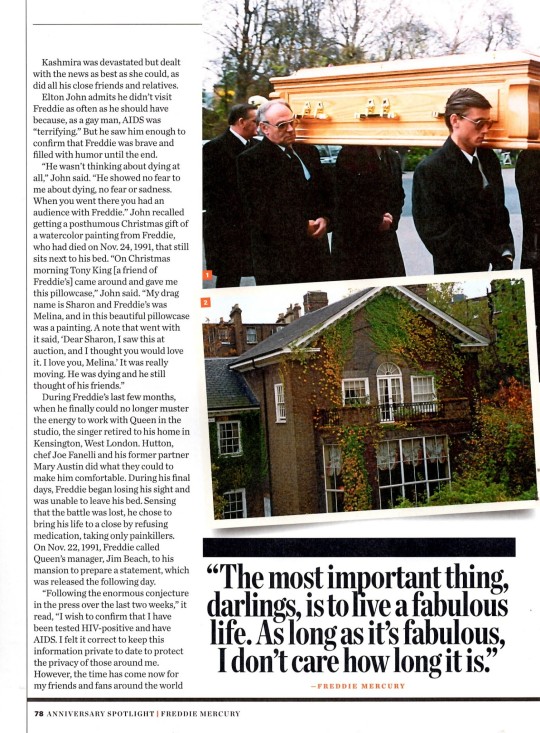
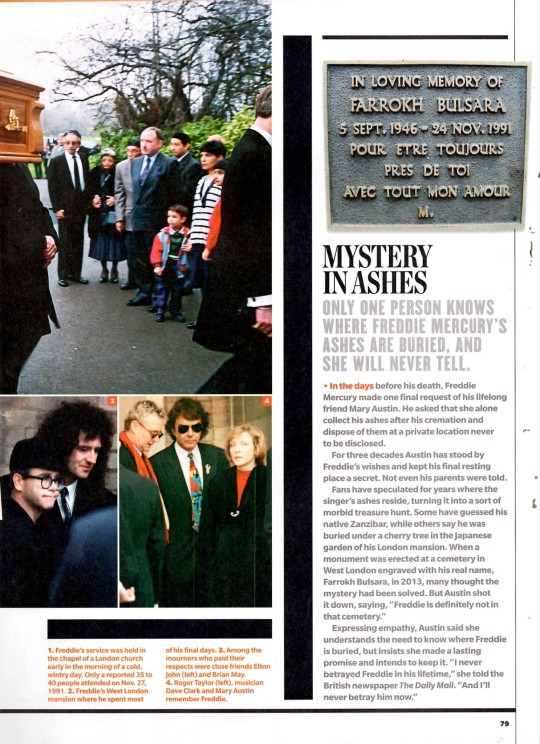
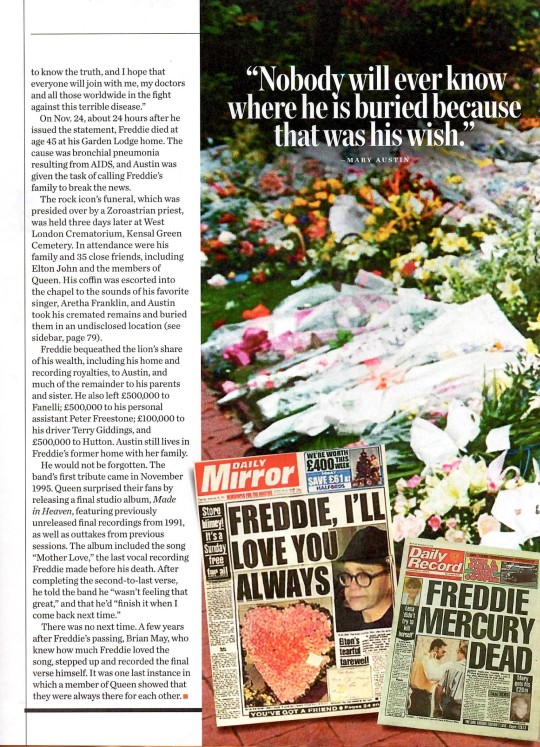

17 notes
·
View notes
Text
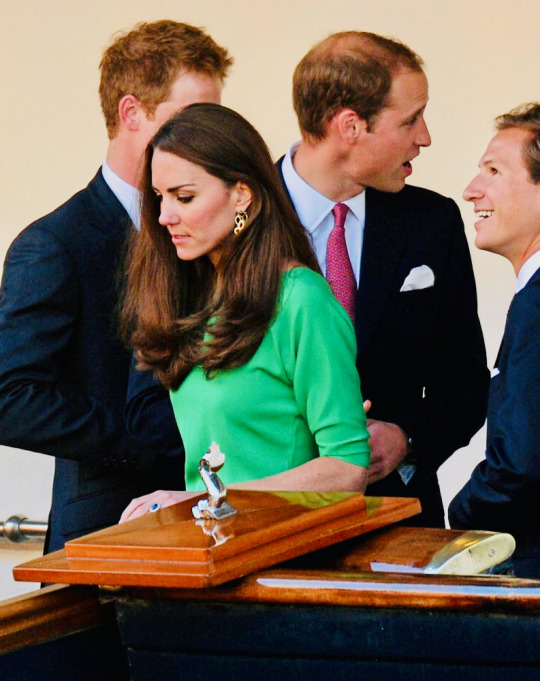
29 July 2011 | Prince Harry, Catherine, Duchess of Cambridge, Prince William, Duke of Cambridge and Dave Clark leave the Royal Yacht Britannia after attending Zara Phillips's and Mike Tindall's pre-wedding party in Edinburgh, Scotland. The Queen's granddaughter Zara Phillips will marry England rugby player Mike Tindall at Canongate Kirk on Saturday. Many royals are expected to attend including the Duke and Duchess of Cambridge.
#Catherine#Duchess of Cambridge#Princess of Wales#Prince William#Duke of Cambridge#Prince of Wales#Dave Clark#Britain#Mike and Zara#2011#unknown photographer
3 notes
·
View notes
Text

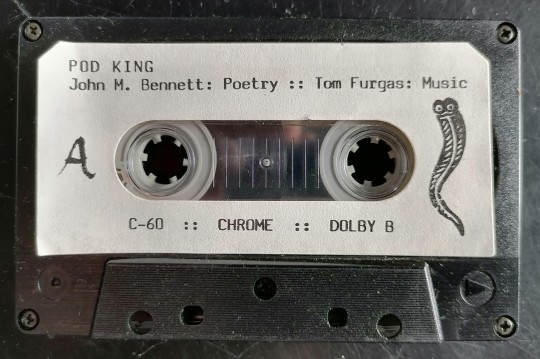
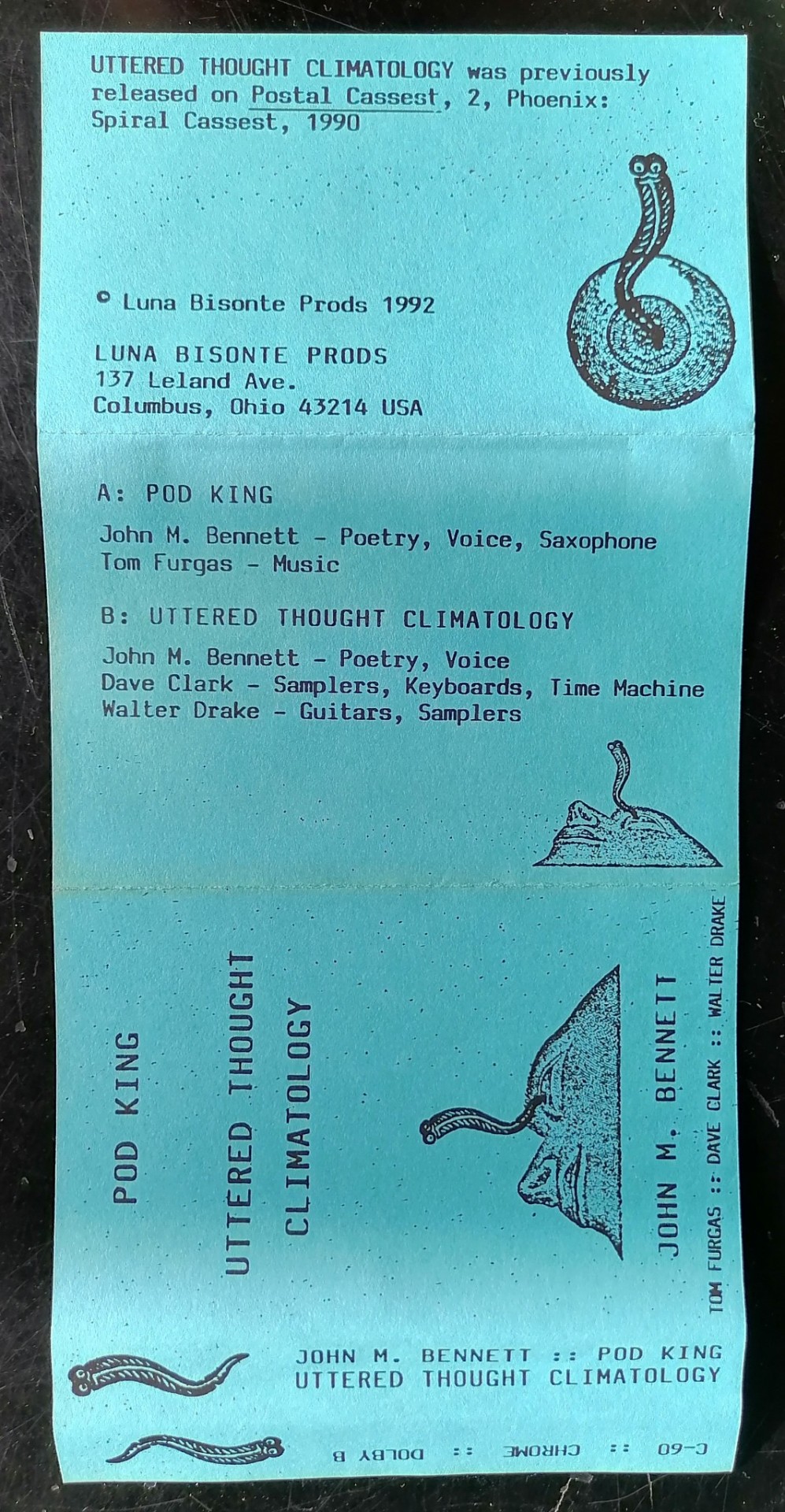
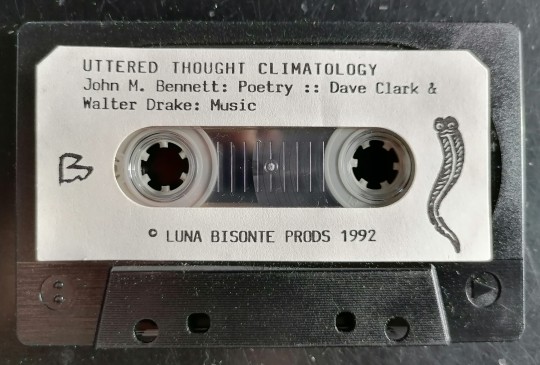
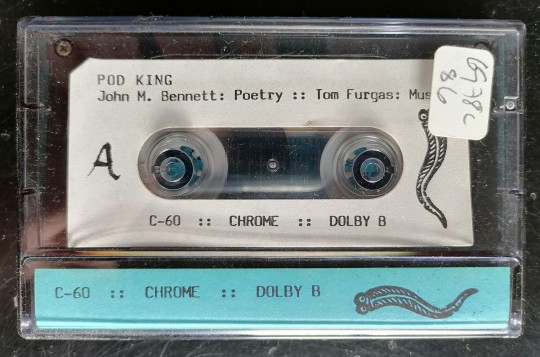
John M. BENNETT
"Pod King / Uttered through Climatology"
(cassette. Luna Bisonte Prods. 1992) [US]
#john m. bennett#1992#usa#ohio#spoken words#poetry#open jazz#tom furgas#dave clark#walter drake#diy#cassette
11 notes
·
View notes
Text
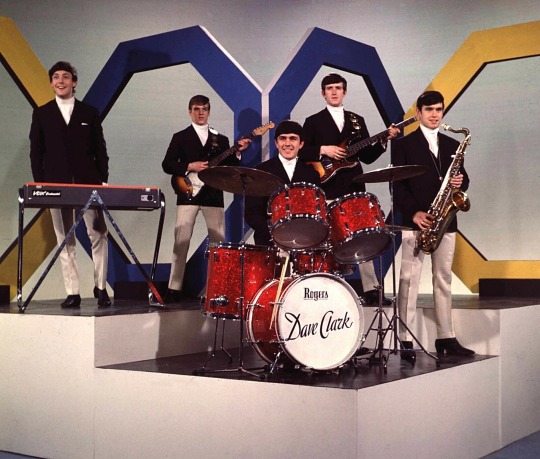
Dave Clark Five - Mike Smith
28 notes
·
View notes
Text

‘Freddie was larger than life and yet he was very kind and caring. The thing I really miss about him is his enthusiasm.
He had an amazing sense of humour and he always made you laugh.
He didn’t take life too seriously.
He lifted your spirits up’
- Dave Clark
- Clark was a close friend of Freddie, and leader of the chart-topping group 'The Dave Clark Five', he is an English musician, songwriter, record producer and entrepreneur -
📸 Pic: 1985 - Freddie Mercury (screenshot) during a interview with David Wigg
#1985#dave clark#david wigg#freddie mercury#queen band#london#zanzibar#legend#queen#brian may#john deacon#freddiebulsara#roger taylor#interview
23 notes
·
View notes
Text
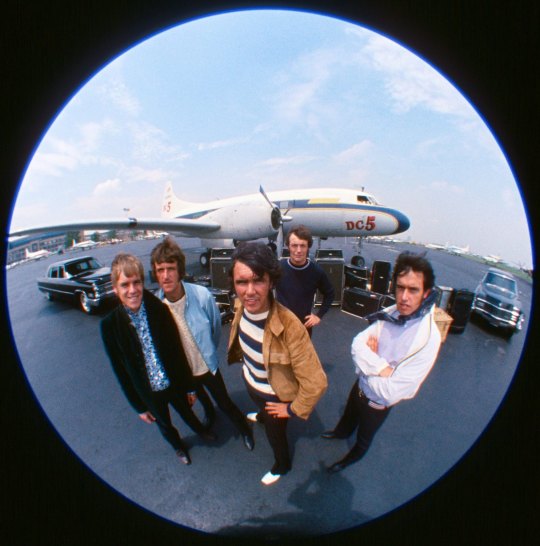
THE DAVE CLARK FIVE
22 notes
·
View notes
Text



Today - November 26, 1991
Credits to Louise Belle and Queencuttings.com
DEATH OF A SHOWMAN
DEATH OF A SHOWMAN
[Photo caption: POWER AND THE PASSION: Freddie Mercury's music thrilled millions. Now his fans are mourning the death of a rock legend]
HE WAS SUFFERING, HE'S IN A BETTER PLACE NOW
By CHRIS HUTCHINS
FREDDIE Mercury dreamed of holding one last party. Arriving home at his Kensington mansion from dinner at a nearby restaurant on a cold night in February, the singer made a call to a showbusiness chum and said: "I'm planning a do — keep September 5 free."
The date was the star's 45th birthday and even then he knew that it would be his last — if he made it. Because Mercury was painfully aware that he had the Aids virus and that it was going to bring his fabulous life to an untimely end.
Tragically, that came true on Sunday, devastating friends like star-turned-impresario Dave Clarke, who had kept a bedside vigil.
Through tears he said: "He was a rare person but he suffered and when he slipped away I knew he was going to a better place."
Back in February though, Freddie's spirit was still strong enough to contemplate a birthday extravaganza. He telephoned his friend several more times over the next few days. He said he had told someone to ask Prince Andrew if he might borrow a state room at Buckingham Palace — fitting, he giggled, for the man who led Queen.
Then a worsening in his condition caused him to modify his plans. He mentioned to his friend that it might have to be a smaller event "perhaps at Claridge's" and said he thought he would ask Lady Elizabeth Anson, who organises royal celebrations, to plan all the details.
Early in March Freddie called his friend again, this time to say that the party was in doubt. He sounded bitter and angry about having to cut himself off from the people he loved so much "because no one understands this sodding illness. I feel stigmatised, like a leper. I feel as if no one wants to have anything to do with me."
By the summer's end, Freddie realised that he was far too ill to party and his birthday would have to pass like any other day as he struggled to find the strength to soldier on.
His muscular body, which had served him well in the boxing ring as a teenager, was wasting pitifully away.
He resented the shocked looks on the faces of the decreasing number of visitors to his Georgian mansion who were permitted to share his [Turn to Page 22]
The insatiable quest for pleasure that drove Freddie to his death
[Photo caption: REIGNING IN SPAIN: Singing hit Barcelona with diva Montserrat Caballe]
[Photo caption: HOUSEWIVES’ CHOICE: Freddie dons a wig and vacuums the lounge in the video of Queen’s 1984 hit I Want To Break Free. But behind the singer’s camp antics is a serious message about domestic drudgery.]
[Photo caption: MY BEST FRIEND: With Mary Austin, his loyal companion for more than 20 years]
[From Page 21] tragic secret. The determination to succeed which had driven him to excel at the piano lessons he started aged seven, was leaving him as he gave in to the final realisation that he was fighting a losing battle.
Where once he had admired others only for their ability to match his excesses, Freddie began to tell those confidants who had managed to put an end to their life-sapping habits in time, that more than anything he lauded them for their restraint.
"Never go back to alcohol or drugs or to being promiscuous," he urged them from his deathbed.
This was a very different Freddie Mercury to the one they once knew. If his house could talk, what tales of gay abandon it would have to tell.
More than anything else, the rock world knew him as the star who loved to party. Guests could have anything they desired as long as they arrived happy and remained deliriously so.
The highly-sexed singer wanted everyone around him to be as turned on as he was and he arranged every kind of titillation he could think of for his guests — gay and straight alike.
It had been his idea to hire a glamorous couple to expose their bottoms to guests arriving for a party at the Groucho Club last year to celebrate his Lifetime Achievement award.
At a celebration for Queen's Wembley concert at Richard Branson's Roof Garden, he booked girls who were adorned from head to foot only with body paint to act as lift attendants. He also hired a young man in chains and a leather jockstrap to run the ladies' powder room. In the gents loo, guests were welcomed by a scantily-clad blonde who offered them a massage after they had washed their hands. Four caged, near-naked girls were the main attraction in the club's gardens — much to Cliff Richard's obvious surprise.
At one festival of fun in the very house where he breathed his last, Freddie engaged dwarves bearing small bowls to move among the assembled hedonists.
The bowls contained £12,000 worth of the best cocaine the star's money could buy. When a dealer failed to obtain enough, a private plane whisked him to Marseilles to get more. Freddie had said: "I want the purest and I want the most."
Servants
He told guests his parties were a throwback to his boyhood days when he was the young master surrounded by white-suited servants at his father's mansion in Bombay.
Little Freddie grew up accustomed to being pampered, for these were the last, lingering days of the Raj and he could have anything he wanted.
Anything, he maintained, except the love he craved — for his father was a busy man and although Freddie always had someone on hand to tie up his shoelaces, there was rarely anyone there to kiss him goodnight.
Left to his own devices he created a fantasy world that he tried hard to turn into reality with the vast riches his talent and his monstrous drive provided.
The parties were a fantasy, a way of buying love for himself and his friends. He pushed everyone to the limit in his search for ongoing gratification.
When a party looked like breaking up, Fredie found a way to prolong it with the result that a "good event" as he called it, could last days, even weeks, with no expense spared.
On one occasion he spent £80,000 hiring Concorde to fly a large group of partygoers to New York where th fun went on for eight days. He had to be surrounded by people — he was both an exhibitionist and a voyeur.
Elton John, George Michael, Liza Minnelli, Mick Jagger, George Harrison, Rod Stewart, Barry Humphries and Duranduran were among those whose company Freddie enjoyed.
All of them agree that his friendship had to be experienced to be appreciated. He was full to the brim with both energy and love. The last of that seeped away on Sunday evening when Freddie — who liked to be called Mary in the confines of his own home — died in his £4 million house full of marble mahogany and memories.
Sixties star Dave Clarke was at his side.
"He was one of my dearest friends," he said yesterday. 'A very rare person and an amazing talent. He gave so much happiness to so many.
"He was also a very caring person, few people know about all the kindnesses he did. I don't want to go into detail but he helped a lot of people who didn't have much themselves.
"He's gone now but he's left an enormous legacy with his music. I worked with him in the early Seventies with Laurence Olivier on something for the musical Time and it was astonishing to observe him.
"He had an incredible personality and watching him work in a recording studio was just like seeing him perform at Wembley.
"It is a great loss and I'm stunned but I'm pleased to be able to say that the end was very peaceful. And, as I said, my friend is in a better place now".
Clarke's pointer to Mercury's generosity is likely to be borne out if and when details of his will are published. Those close to his management suggest that, in anticipation of his demise, the star gave away almost half of his £20 million fortune this year. He bought ten small houses in west London to leave as homes for friends who had none.
The owner of one three-bedroom cottage in Chiswick was asked to "be out" when the prospective buyer called to view, but a neighbour recognised Mercury who later paid the asking price of £160,000 and the same amount for an identical adjoining house. Others who paid tribute to him yesterday include disc jockey and comedian Kenny Everett who said: "He burned the candle at both ends — and in the middle". George Michael was told of Freddie's death in Los Angeles where he is recording and was said to be "devastated."
A friend said: "He is very upset because he always admired Freddie as a performer.”
Fellow star Phil Collins said: "I admired him and I admired his honesty in admitting he had Aids. It is all so sad."
Peter Straker, now starring in the touring version of The Phantom Of The Opera, said: "Freddie is an inspiration to me."
Gestures
"We worked together on three of my albums. He was a perfectionist and his inventiveness coupled with a meticulous attention to detail brought me enormous extra satisfaction.
"He loved parties and he celebrated his achievements with extravagant and sumptuous gestures, executed with enormous kindess."
Sixties singing idol Sandie Shaw, now heavily involved with raising money for Aids charities, said: "This is so tragic."
Sara Dallin of Bananarama added: "This is so sad, a great tragedy. He was a favourite performer."
Musician-turned-politician Screaming Lord Sutch, who played on the same bills as Queen at colleges in the early Seventies, said: "We have lost a most original and entertaining singer who inspired many, many people.
He was a unique talent."
He said Freddie ranked alonside the likes of Mick Jagger and Elvis Presley.
"We have no one else left like him except Mick Jagger. Like Presley he had the looks, physique, movement and that outrageous voice. It was almost like he had too much talent to pack into one body."
Spanish soprano Montserrat Caballe said she knew she and Mercury would not be able to sing their hit Barcelona at next year's Summer Olympics.
"We had discussed it in the past, but there was nothing definite," Caballe told Spanish National Radio. "And I knew that surely he would not have been able to do it."
The incongruous duo of the opera singer and the flamboyant rock star first performed Barcelona, written by Mercury in celebration of that city, at London's Covent Garden theatre in 1987.
Caballe said she and Freddie had begun recording an album they were to have completed after the Olympics.
She had been in touch with him recently and found him "animated, withthat old sparkle in his eyes and with a tremendous desire to live through music."
Francis Rossi, of Status Quo, said: "Freddie was one of the elite few who could really set a stadium alight.
"I am deeply upset to hear of the death of both a friend and a fine ambassador for British music.
"Along with millions of fans throughout the world I will miss his exceptional performance and brilliant voice."
It is true the world will miss Freddie Mercury, especially his fans, the cocaine dealers and the partygoers.
"One way or another they all sampled something he had to offer.
[Photo caption: GLAM OPERA: Queen’s Bohemian Rhapsody heralded the video age by transforming the medium into an art form]
TODAY Comment
FREDDIE Mercury had the courage to admit that he was suffering from Aids and he wanted the world to focus on the agony this disease can cause.
What a fitting tribute it would be if his record company reissued Queen's biggest hit, Bohemian Rhapsody, with all the proceeds going towards Aids research.
How much better to have a Christmas No 1 that would do some real good, rather than the latest pop sensation merely cashing in on a special time of the year.
Rock rhapsody that launched age of the video
QUEEN surged into the charts in the early Seventies. In two years they changed forever the way the rock industry presented and sold its stars.
Bohemian Rhapsody, a bizarre blend of pomp, multi-tracked vocals and operatic delivery, brilliantly caught the spirit of the time by mixing great rock musicianship with the showbiz pose of the glam-rock years.
Progressive rock fans were delighted as Queen wrapped the song up in a mini pop opera — all for the price of a single. The video helped keep Freddie and the band at the top for nine weeks at the end of 1975.
Rock critic Paul Gambaccini said: "Let us give them credit for the video revolution. Without Bohemian Rhapsody it would never have happened."
In an interview on TV-am, Gambaccini added: "What a star Freddie Mercury was. He could hold an audience in the palm of his hand."
Before Queen was formed, Freddie attempted a solo career. And if his stage name of Freddie Mercury was perhaps rather a surprising choice, think what might have been if he had stuck to his original solo name — Larry Lurex!
Here is the full list of his hit singles.
QUEEN SINGLES - Chart position
Seven Seas Of Rhye (1974) - 10
Killer Queen (74) - 2
Now I'm Here (75) - 11
Bohemian Rhapsody (75) - 1
You're My Best Friend (76) - 7
Somebody To Love (76) - 2
Tie Your Mother Down (77) - 31
Good Old Fashioned Lover Boy (77) - 17
We Are The Champions (77) - 2
Spread Your Wings (78) - 34
Bicycle Race (78) - 11
Don't Stop Me Now (79) - 9
Love Of My Life (79) - 63
Crazy Little ThingCalled Love(79) - 2
Save Me (80) - 11
Play The Game (80) - 14
Another One Bites The Dust (80) - 7
Flash (80) - 10
Under Pressure + David Bowie (81) - 1
Body Language (82) - 25
Los Palabras De Amor (82) - 17
Backchat (82) - 40
Radio GaGa (84) - 21
I Want To Break Free (84) - 3
It's A Hard Life (84) - 6
Hammer To Fall (84) - 13
Thank God It's Christmas (84) - 21
One Vision (85) - 7
A Kind Of Magic (86) - 3
Friends Will Be Friends (86) - 14
Who Wants To Live Forever (86) - 24
I Want It All (89) - 3
Breakthru' (89) - 7
The Invisible Man (89) - 12
Scandal (89) - 25
The Miracle (89) - 21
SOLO SINGLES
Love Kills (84) - 10
I Was Born To Love You (85) - 11
Made In Heaven (85) - 57
Living On My Own (85) - 50
Time (86) - 32
The Great Pretender (87) - 4
Barcelona + Montserrat Caballe (87) - 8
[Photo caption: STAGE ACT: Gymnast]
[Photo caption: STAGE ACT: Rocker]
[Photo caption: STAGE ACT: Shocker]
Mary tells of final weeks of anguish
MARY Austin, the woman who shared much of Freddie Mercury's life and nursed him through his final weeks, has spoken of his "incredible suffering".
Mary, his loyal companion for 21 years, had been with Freddie during the day but left his bedside just ten minutes before he died.
"I spent from 9.30am to 12.30pm with him at the house. I finally missed him by about 10 minutes," she said.
Mary had an on-off relationship with Freddie for 21 years and although she married another man and had his child, she and Freddie remained close friends and the star was godfather to her child. She had visited him almost every day during the last months of his illness.
"He faced it with incredible bravery but he did suffer, mentally and emotionally as well as physically.
"He suffered a lot especially in the last few days. He couldn't eat, and he was under heavy sedation.
"When I went round, sometimes we would talk if he had the energy but he was under such sedation. He would listen, or sometimes, we would just sit."
On the night he died, Mary received a call at her home — just ten minutes' walk away from the star's £5 million Kensington mansion — but when she arrived, he was already dead.
Mary had to break the news to Freddie's parents.
Courage
"He became very ill very quickly and he didn't really want them to see him. I think his parents did accept him. They were very close. But Freddie was always away. He saw them more in the last five years when he came back to London."
His mother had seen him eight days before he died.
Mary met Freddie in the days before his music fame, when she was a manageress in the plush London boutique Biba."He used to come in all the time. He finally plucked up the courage to ask me out. It seems strange now; I didn't even know he liked me until then.
"The more I knew him, the more I grew to love him as a person. He was very talented. There was a lot of sharing and bonding between the two of us.
She said she never regretted that they had not married. "I never stopped loving him and I don't think he did either. I think he had got positive feelings about me. He trusted me. You don't need a piece of paper to be married — it is in the heart and our marriage was in the heart."
Mary said she was still trying to come to terms with her friend's death. "Even though we knew the end was coming, it has still come very much as a shock. I am still finding it hard to find words for myself — let alone to share."
"I thought it would be difficult but when you really love somebody, you can be strong and I was strong for him."
Mary hopes that those who knew Freddie or admired his music will work together to campaign for Aids sufferers and to help fight the disease.
"I would like to see more and better education about what Aids can do. Having witnessed the suffering it causes, I hope some of Freddie's friends and fans will get involved in the campaign against Aids."
CLIVE NELSON
#queen#queen band#freddie mercury#queen scans#queencuttings.com#today november 1991#mary austin#dave clark
23 notes
·
View notes
Text
Dick Clark 20 Years Of Rock N’ Roll (1973)

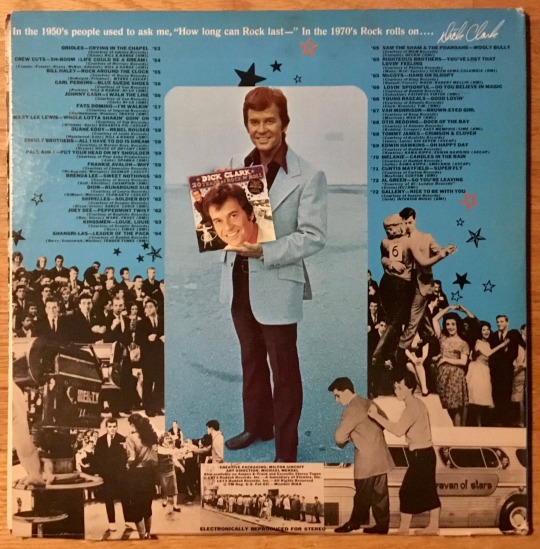



Contains 20 Original Hits Electronically reproduced for Stereo
Gatefold; includes 24 page "Yearbook" and the pictured flexi-disc, "Inside Stories," containing Dick Clark's recount of 'first time' broadcast appearances by artists on his show over the years.
Buddha Records
#my vinyl playlist#dave clark#crew cuts#bill haley#carl perkins#johnny cash#fats domino#jerry lee lewis#duane eddy#the everly brothers#paul anka#frankie avalon#brenda lee#dion#the shirelles#joey dee#the kingsmen#shangri-las#sam the sham & the pharohs#righteous brothers#the lovin' spoonful#the young rascals#van morrison#otis redding#tommy james#edwin hawkins#curtis mayfield#al green#oldies#rock n roll
8 notes
·
View notes